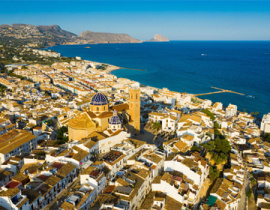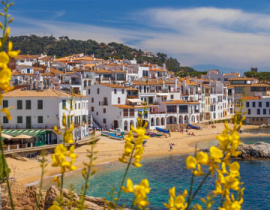- Home
- Blog
- Buying Guide
- Understanding VPO Properties in Spain: Essential Facts
Understanding VPO Properties in Spain: Essential Facts
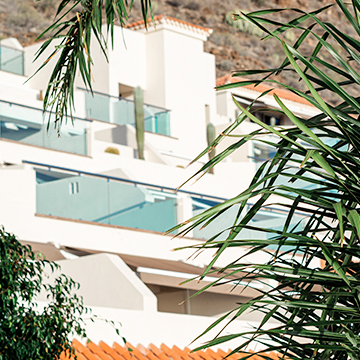 Spain’s real estate market offers an array of property types, from luxurious beachfront villas to historic rural homes. But tucked within the broader landscape lies a niche—and often misunderstood—category known as Viviendas de Protección Oficial, or VPO.
Spain’s real estate market offers an array of property types, from luxurious beachfront villas to historic rural homes. But tucked within the broader landscape lies a niche—and often misunderstood—category known as Viviendas de Protección Oficial, or VPO.
Commonly referred to as official or social housing in Spain, VPO properties are designed to offer affordable housing solutions to people with limited economic means. However, as demand for cost-effective housing grows in 2025, questions around VPO eligibility, foreign buyer access, and investment potential have come to the forefront.
Let’s break down what a VPO property in Spain is, how it differs from standard market housing, and what role—if any—it can play in a foreign buyer’s real estate strategy.
What Are VPO Properties in Spain, and Who Are They For?
VPO stands for Viviendas de Protección Oficial, which translates to "officially protected housing." Official protection homes in Spain are part of the country’s broader social housing framework and are typically promoted by public authorities or private developers under government agreements. The primary goal is to help low- and middle-income individuals or families gain access to decent, affordable housing in Spain.
To ensure affordability, these homes are subject to price controls, resale restrictions, and buyer eligibility criteria. VPO homes in Spain often cost considerably less than their market-rate counterparts, which makes them attractive, but also tightly regulated.
The Spanish government sets specific limits on the maximum price per square meter for VPO properties, and buyers must meet certain income thresholds to qualify. These homes are typically offered for purchase or rent, depending on the autonomous community and specific housing program in place.
Can Foreigners Purchase VPO Property in Spain?
If you’re wondering, can foreigners buy VPO homes in Spain? The answer is yes, but with significant caveats.
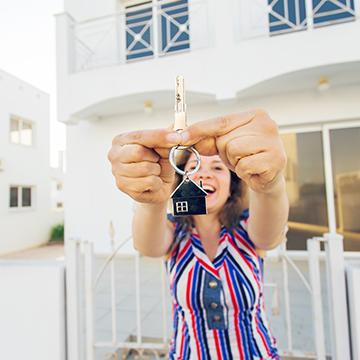 Foreign nationals are not excluded from purchasing VPO homes in Spain. However, they must meet the same criteria as Spanish citizens. This includes income limits, residency requirements, and in many cases, proof that the property will serve as their primary residence.
Foreign nationals are not excluded from purchasing VPO homes in Spain. However, they must meet the same criteria as Spanish citizens. This includes income limits, residency requirements, and in many cases, proof that the property will serve as their primary residence.
For non-resident foreigners or those who plan to buy a holiday home or investment property, VPO is rarely a viable option. These properties are specifically designated for use as a main residence, and speculative investment or rental purposes are generally prohibited.
In regions where demand for affordable housing is high, authorities may enforce these rules with greater stringency. So even if a foreigner meets the income threshold, their non-resident status or inability to commit to living in the property may disqualify them.
Income and Residency Requirements: Key Barriers to Entry
One of the core aspects of VPO housing in Spain for foreigners and locals alike is income regulation. Each autonomous community in Spain sets its own limits, usually based on multiples of the Indicador Público de Renta de Efectos Múltiples (IPREM), a benchmark index used to calculate eligibility for public assistance.
Typically, to qualify for a VPO, a buyer’s household income must fall within a narrow band, often between 1.5 and 5.5 times the IPREM. This can translate into an income ceiling of around €30,000 to €45,000 per year, depending on region and family size.
Additionally, many regional governments require proof of long-term residency in Spain, or at least evidence that the buyer intends to make the property their habitual residence for a minimum period (commonly 5 to 10 years). For foreign investors who are either part-time residents or seeking rental yields, these stipulations pose a significant barrier.
Navigating the Legal and Financial Landscape of VPO Homes
Buying a VPO in Spain is not the same as purchasing a home on the open market. These transactions are subject to additional bureaucratic layers, including approval from the local housing authority.
 Furthermore, resale is restricted, often for up to 30 years. During this time, the owner cannot sell the property on the free market without first offering it back to the government or obtaining declassification status. This process can be lengthy and requires specific conditions to be met, such as repayment of government subsidies.
Furthermore, resale is restricted, often for up to 30 years. During this time, the owner cannot sell the property on the free market without first offering it back to the government or obtaining declassification status. This process can be lengthy and requires specific conditions to be met, such as repayment of government subsidies.
Buyers also face specific tax implications. While there may be some financial advantages—such as reduced VAT (IVA) or lower property transfer taxes (ITP)—the required savings and upfront costs are not negligible. According to data from recent housing reports and insights into the tax rules for VPO property in Spain, buyers must still prepare for initial expenses totaling around 30% of the property's value, including deposits, taxes, and legal fees.
On the mortgage front, some Spanish banks offer specialized products for VPO buyers, often with favorable interest rates. However, these are contingent upon fulfilling all regulatory requirements, and many buyers also wonder: do VPO homes have mortgage restrictions in Spain? The answer often depends on the region and the specific terms attached to the protected status of the property.
Are New VPO Properties Different From Pre-Owned Ones?
Yes, and the differences are important to understand. New vs. pre-owned VPO properties vary in access, condition, and obligations.
Newly built VPO homes are often allocated directly by regional authorities or through subsidized development projects. These typically come with full guarantees, lower maintenance needs, and compliance with modern construction standards. They are usually more energy-efficient and located in newer urban zones.
Pre-owned VPO homes, on the other hand, might come with additional restrictions. For instance, the seller may need government permission to transfer ownership, and the new buyer must still meet income and residency conditions. Also, older homes may not offer the same energy efficiency or build quality, increasing future maintenance costs.
Instead, buyers seeking cost-effective investment options might find better alternatives by targeting up-and-coming areas with potential for capital growth. Many cost-effective regions for real estate investment in Spain offer greater freedom, better resale opportunities, and fewer legal headaches.
Legal Changes and How They Affect Foreign Buyers
Over the years, there have been attempts to liberalize VPO housing in Spain. Some regions have shortened the restriction period, while others have made it easier to convert VPO properties into free-market homes under certain circumstances. The latest changes in VPO housing law in Spain 2025 reflect these cautious reforms.
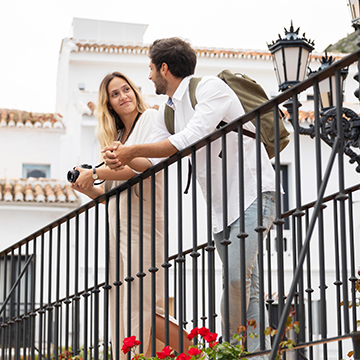 However, in 2025, the national and regional authorities continue to emphasize VPO’s social purpose. Any loosening of restrictions is being approached cautiously to avoid distorting the original intent of affordability and access.
However, in 2025, the national and regional authorities continue to emphasize VPO’s social purpose. Any loosening of restrictions is being approached cautiously to avoid distorting the original intent of affordability and access.
For foreign buyers, this means that the investment potential of VPO remains very limited. While the idea of purchasing a cheaper home in Spain is enticing, the legal and logistical hurdles make it a risky endeavor for those not intending to reside permanently in the country
Regional Variations and Access for Non-Residents
Spain’s 17 autonomous communities govern VPO housing independently, leading to regional differences in rules and availability. VPO availability in Andalusia, Valencia, and Madrid shows a sharp contrast—Madrid has high demand and limited stock, while some smaller cities offer more access.
Technically, foreigners can buy VPO homes across all regions. If you are asking ‘’Are there regions where VPO properties are more accessible for foreigners?’’ Yes—usually in areas with lower demand and more flexible criteria.
In 2025, Andalusia launched a major housing plan to build 20,000 subsidized homes over five years. Which Spanish regions offer VPO to foreigners depends on local policies, but Andalusia currently offers one of the most open options for long-term legal residents.
Discover the top locations to buy property in Spain.
Is VPO in Spain a Good Idea for Foreign Buyers?
For foreigners who plan to live in Spain full-time and fall within the income brackets, a VPO home might offer a pathway to affordable homeownership. But for most international buyers—particularly those interested in holiday homes, rental income, or short-term investment—the limitations of Spain's government housing make it a poor fit.
Instead, buyers should explore more flexible alternatives that align with their financial goals and residency status. Spain’s dynamic housing market still offers plenty of cost-effective options without the regulatory complexity of VPO housing.
Recent insights into Spain’s 2025 property trends reveal a market that rewards strategic investment, particularly in areas undergoing urban renewal or benefiting from infrastructure expansion. For those in search of such opportunities, understanding where to invest and what to avoid is critical to making informed decisions.




